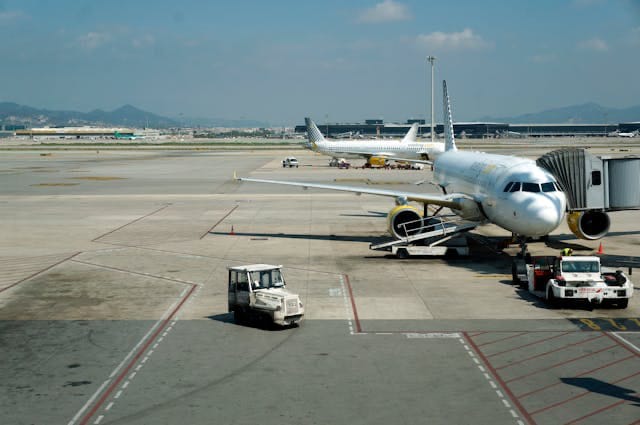
The world of aviation doesn’t just rely on pilots and aircraft systems; it also depends heavily on a host of ground support equipment that ensures each flight can take off, land, and maintain a schedule. These unseen operations are integral to the smooth functioning of airports and airlines around the world. From refueling to baggage handling, aircraft rely on an interconnected network of specialized machinery and personnel to perform essential tasks. Without it, the streamlined flow of aircraft operations would face serious disruptions, affecting everything from passenger comfort to flight schedules.
Towbars: Precision in Aircraft Movement
Aircraft towbars are one of the most essential pieces of ground support equipment, responsible for moving aircraft safely and efficiently on the tarmac. This tool connects to the aircraft’s nose gear, allowing ground vehicles like tow tractors to maneuver the plane into precise positions, whether for takeoff, landing, or maintenance. The importance of towbars lies in their ability to handle the immense weight of an aircraft while providing fine control over its movement, ensuring safety and accuracy during operations. Towbars come in various designs and lengths, each suited to different types of aircraft, from smaller private jets to large commercial airliners.
Aircraft Refueling: Delivering Fuel with Precision and Safety
Refueling is a critical ground operation that must be performed with precision and safety to ensure aircraft are ready for flight. Fuel trucks and hydrant systems are used to deliver jet fuel to the aircraft, each equipped with advanced safety systems to prevent contamination or spillage. The refueling process begins with careful coordination between ground personnel and flight crews, ensuring that the correct type and amount of fuel are delivered based on the aircraft’s specifications and flight plan.
Fuel trucks are designed with multiple safety features, including grounding systems to prevent static electricity from igniting the fuel and filtration systems to ensure it is clean and free from contaminants.
Deicing Operations: Maintaining Flight Safety in Winter Conditions
Deicing is an essential ground support service, especially in cold weather climates where ice and snow can accumulate on aircraft surfaces. Ice buildup on wings, control surfaces, and other parts of the aircraft can severely affect its aerodynamics, leading to dangerous flight conditions. Deicing trucks are equipped with nozzles that spray heated glycol-based solutions onto the aircraft, melting the ice and preventing further accumulation before takeoff. The deicing process is carefully controlled to ensure that all critical areas of the aircraft are cleared of ice, particularly the wings, which generate lift.
Baggage Handling Systems: Ensuring Efficient Passenger Service
Baggage handling is one of the most visible ground support operations, playing a crucial role in ensuring that passengers’ belongings are safely transported between destinations. Modern baggage handling systems are highly automated, using conveyor belts, barcode scanners, and RFID technology to track and sort luggage as it moves through the airport. This automation reduces the likelihood of lost luggage while speeding up the process of loading and unloading aircraft. The efficiency of baggage handling systems is vital to keeping flights on schedule, as delays in loading or unloading luggage can cause significant disruptions. Ground crews are responsible for manually loading and unloading bags onto conveyor belts that transport them to and from the aircraft. These teams must work quickly and efficiently, particularly during short turnarounds between flights.
Pushback Operations: Moving Aircraft Safely on the Tarmac
Pushback is a critical operation in which an aircraft is pushed backward from the gate using a specialized vehicle known as a pushback tractor. Since aircraft cannot reverse on their own, pushback tractors are necessary to maneuver the plane away from the gate and onto the taxiway before takeoff. This operation requires precision and coordination between the pushback driver, ground personnel, and the flight crew to ensure that the aircraft is positioned correctly without any collisions or delays. Pushback tractors are built with powerful engines capable of moving large commercial jets, while maintaining fine control over the movement. These vehicles are equipped with hydraulic systems that attach securely to the aircraft’s nose gear, allowing for smooth and controlled motion.
Conclusion
Ground support equipment plays an essential role in ensuring the smooth and safe operation of aircraft on the ground. From tow bars that allow precise movement to ground power units that supply necessary energy, each piece of equipment is vital for maintaining the overall efficiency and safety of air travel. These tools and operations are the foundation of successful aircraft operations, ensuring that every flight takes off and lands without incident.